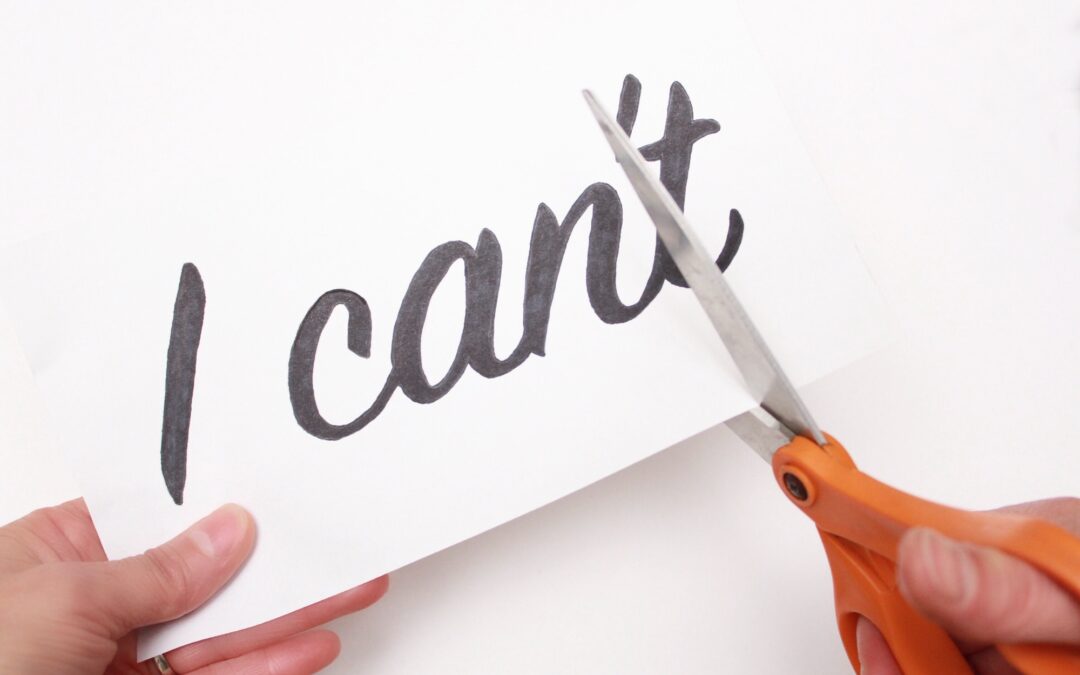There probably isn't a second that goes by without somebody posting or sharing an affirmation on social media. Affirmations have the strong ability to lift your spirits, get you through hard times, and change your life. This is because affirmations can help change your thinking and reprogram your brain! But what happens when there is a part of you that isn't ready or willing to change?
If you've ever had the experience of saying an affirmation and feeling like it had the opposite effect and blew up in your face, then you've experienced what happens when affirmations attack. I say that half-jokingly but, the point is that affirmations can kick up dust in your psyche if you're unconsciously resistant to the thing you're trying to affirm.
The secret to writing a powerful and effective affirmation is to write one that resonates with a truth you can fully embrace. For example, if your affirmation that "I live a life of abundance" seems to work against you or not at all, affirming that "I am open to living a life of abundance" or that "I allow greater abundance into my life each day" can produce better results. With little to no unconscious resistance to an affirmation, your brain can more easily build and strengthen neural pathways that meet you where you are while supporting a belief that will help you grow beyond that.
As you can see, affirmations do more than just help us to keep a positive attitude about life. They help us to embody those beliefs in mind, body, and spirit and calibrate our attention and behavior accordingly. It's only natural that we'll gain even more from these positive declarations by writing our own affirmations specific to our needs.
When you start writing your affirmations, keep these tips in mind:
- Make them personal. When you write affirmations, it's important to use "I" or "My" in them. Personalizing your affirmations helps you to own them and derive greater strength and meaning from them.
- Use the present tense. Affirmations are about strengthening and focusing your power and attention. They help you own the moment. Present tense helps you stay present with what you are affirming. When you use the future tense, you can slip into wishful thinking. When you use the past tense, you tend to look backward. A creative exception here is affirmations that include "I used to…" which can help you put an unwanted habit in the past. Coupling it with a present-tense affirmation about the new habit strengthens it exponentially. "I used to…Now, I…"
- Be authentic. Use your own style when crafting your affirmations. No need to make your affirmations too formal or flowery—unless you're into that. Capture your unique voice.
- Keep it short and memorable. Affirmations are usually more potent when they are short, to the point, and easy to remember. The trick is to stick with one simple idea at a time rather than try to cram in multiple things. Stay on target and keep it to one or two lines if you can.
-
- Example: "I am Elmer J. Fudd, millionaire. I own a mansion and a yacht." 😊
- Make it positive. Affirmations are positive statements, so avoid negative words like "not" or "don't." Acknowledging what you don't want is not the same as focusing on what you do want. You're using affirmations to make an improvement; positive statements help motivate you to make them.
- Make it believable. Anything is possible but is less likely to happen if you don't believe it will. If deep down you really don't believe your affirmation, you won't take it seriously—and neither will your subconscious. Create an affirmation that you truly believe is attainable.
- Say your affirmations daily. Take deep breaths and be as present as possible with your affirmations. Keep them in a place where you can see them, such as on your phone, computer, bathroom mirror, or wherever you know you'll see them (or hear them) each day. Turn an affirmation into a song and/or dance to give it extra oomph.
Final Notes
Affirmations are truly powerful invocations as long as you believe what you're telling yourself. When writing your affirmations, first, set your eyes on your goal and then write affirmations to help get yourself there. Practice makes perfect. Write what you feel. Then go over the list above and make sure that your affirmations follow the guidelines. Once they do, start using your affirmations. If need be, tweak them to better align yourself with what you want. They're not written in stone. As you change, your affirmations can change, too. Give them a try and enjoy the benefits these positive statements can make in your life.

